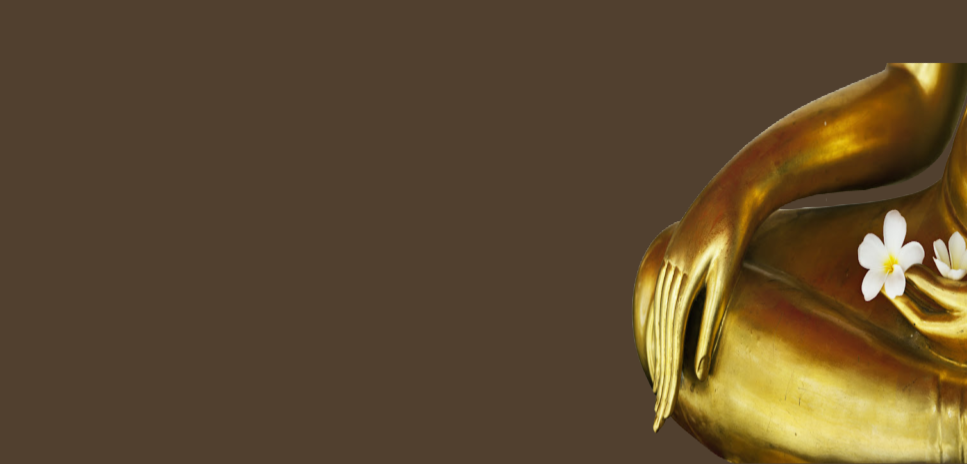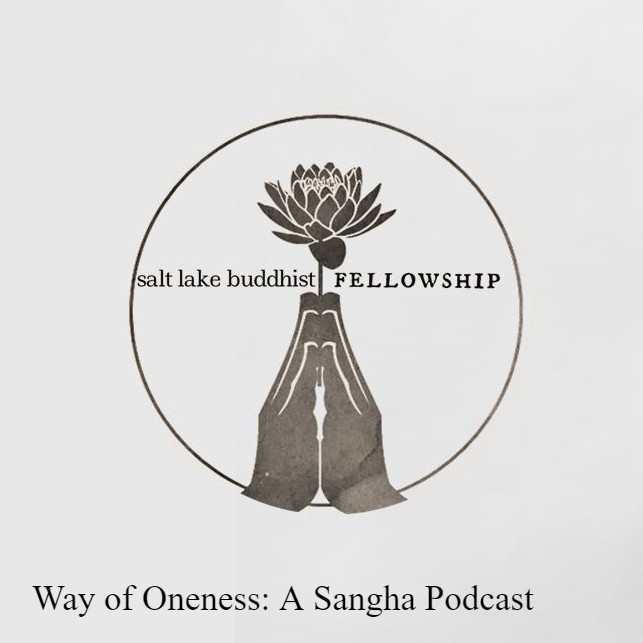Episodes
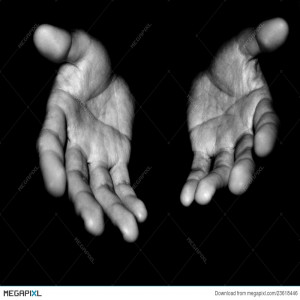
Tuesday Sep 22, 2020
Enoughness: Reflections on the Second Precept of Buddhism.
Tuesday Sep 22, 2020
Tuesday Sep 22, 2020
Excerpt
When I first started to explore and examine this precept, my first inclination was to feel guilt for taking paper clips from work or printing things for personal uses on my work computer. Funny, that I found ways around it Like buying a ream of paper to replace the 40 pages I used. I started to make sure I paid for all of my Trax rides.
I did start to examine some of my motivations for doing what I was doing, but for me, most of these simple practices were very superficial and more a residual of my old relationships with the Judeo- Christian commandments. Again, we do not practice the precepts to appease a deity, or because it makes us a good Buddhist, but to help us gain insight into the mindset of an awakened being, a state of mind that is grounded in contentment.
A practice-based on any kind of checklist is just a checklist and ultimately non-transformative. There is a much deeper meaning in the second precept than simply not taking something that belongs to someone else. That is a legalistic approach.
Buddhism teaches that there are 10 fetters - mental chains that keep us bound - one of them is the dependence on moral rules and religious observances as an end in themselves – Being circumspect and never “stealing” even paperclips may be laudable but is it transformative in itself. Maybe.
From my life experience, the end of the second precept is not simply about not stealing, about observance a rule but about how we perceive the world and our place in it. It is about cultivating a state of mind of contentment, of enoughness. Gyomay Kubose Sensei teaches us that an agitated mind cannot see things as they are, only a calm mind can. A continual sense of lack, a subtle greed, creates great and subtle waves of agitation. And over time this creates a subtle and pernicious sense of entitlement.
At the heart of the second precept is an antidote to this continual refrain and rationalization of taking something not freely given, “I deserve this” or I deserve more than I am being given. These are all manifestations of the poison of greed."

Tuesday Sep 15, 2020
Affirming Life: The First Precept
Tuesday Sep 15, 2020
Tuesday Sep 15, 2020
Even though the precepts were not directed to the community directly, they are all about community. The precepts are about action and intention. I appreciate this from Wendell Berry,
“ To act in short is to live. Living is a total act. Thinking is a partial act. And one does not live alone. Living is a communal act…
He goes on to quote Emerson,
“I grasp the hand of those next to me, and take my place in the circle, to suffer and work.”
I love the lack of sentimentality in these words. For us, the suffering is the first noble truth- dukkha – the acknowledgment that in the midst of life there is suffering and for us, the work is the practice. The precepts can be seen as the practice. This is what we do as a Sangha, we take each other's hand in our suffering and do the work. And what precept is more at the heart of community than affirming life? The first precept is from which all the other precepts flow.
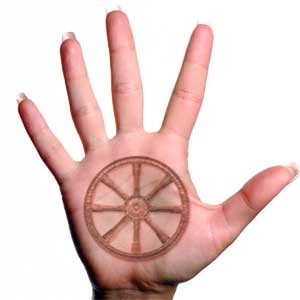
Wednesday Sep 09, 2020
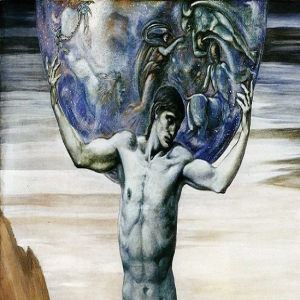
Tuesday Sep 01, 2020
What Are You Carrying?
Tuesday Sep 01, 2020
Tuesday Sep 01, 2020
Excerpt from the dharma talk.
The heaviest burdens we can carry are the burdens of the past- either for something that was done to us or done by us, and we spend so much time there. I have talked about this before, that we are constantly time-traveling from the past to the future and rarely present in the flow of now. We fix ourselves firmly in the past or because our dissatisfaction with the present or our unwillingness to change in the present, we travel constantly to the future, where everything is controllable, and the outcomes can be as expected. As Gyomay Kubose Sensei teaches,
"Many people get attached to the past or to the future and neglect the important present. We must live the best "now" with full responsibility."
I think we understand this though many of us do nothing about it. I think that is why Gyomay Sensei ends his teaching with the idea of living with full responsibility.
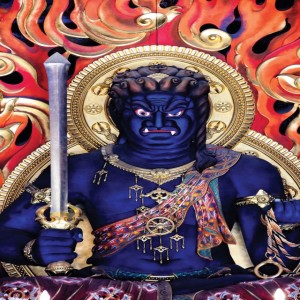
Sunday Jan 05, 2020
Protective Anger
Sunday Jan 05, 2020
Sunday Jan 05, 2020
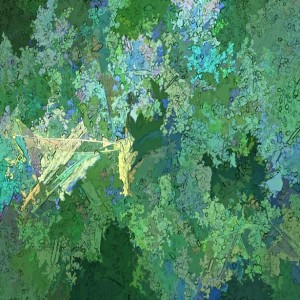
Saturday Nov 09, 2019
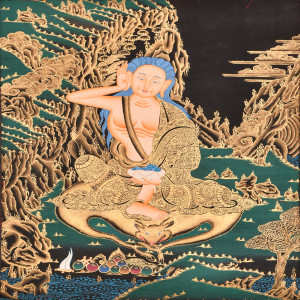
Thursday Oct 31, 2019
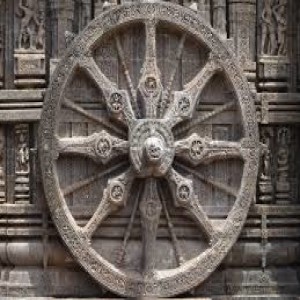
Saturday Aug 10, 2019
Taking Refuge in the Dharma
Saturday Aug 10, 2019
Saturday Aug 10, 2019
From the dharma talk
"Many appreciate and value the teachings of the Buddha, post endless memes with quotes he said and never said, there are some who have got out of bad marriages, bad jobs because of something they read or heard on a Buddhist podcast – and all this is the fruit of the teaching. At the same time, going for refuge is more than just an intellectual appreciation of the Buddhas Brains.
Going for refuge is not simply an activity of thinking, of ideas or concepts but the walking of the path of the Buddha. It is an activity of the heart. It is important to note that in Chinese the same character is used to convey “heart” and “mind,” and that the two are seen by the Chinese as one inseparable “heartmind.”
Taking refuge in the dharma can be seen as taking the teachings from the conceptual to the everyday – we take refuge in the dharma in our hearts."
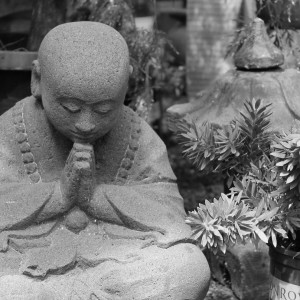
Thursday Jul 04, 2019
Repentance, Confession and Forgiveness: A Buddhist Take.
Thursday Jul 04, 2019
Thursday Jul 04, 2019
excerpt...
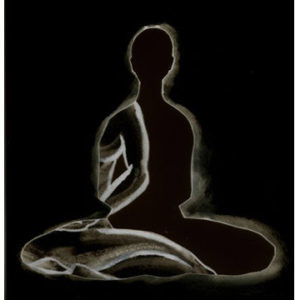
Monday May 27, 2019
Sitting in the Dark
Monday May 27, 2019
Monday May 27, 2019
excerpt from the Dharma talk delivered May 26th in Salt Lake City.
"..that brings to my mind the Mojave desert at night - the Mojave Desert Preserve is also a dark skies Preserve meaning that any artificial list is restricted and it is one of the few places that you can see the Milky Way the way our ancestors did for millennium - Lots of tourist come get of the tour bus and look up at the night sky for about 5 minutes and say “that’s nothing I can see that at home” disappointed they get back into the tour buses - The reason they didn’t see anything is that they didn’t let their eyes adjust to the darkness - they actually didn’t see anything - those that were willing to stop, sit and wait in the darkness and let their eyes adjust - are shown the same view of stars that the first humans stood in awe of and made into the gods of their myths.
Are we not the same in our spiritual journeys - if all spiritual journeys start in darkness is not the first step not a step at all but to finally and courageously sit silently in the darkness and let our spiritual eyes adjust to the darkness -
Isn’t that what meditation is, it is sitting in the darkness of ourselves being still and allowing the darkness to show us the light of our inner luminosity?
For me it's similar to the lyrics from Leonard Cohen - but instead of all the cracks in the world letting the light in - I see all the cracks in the world letting the light out
May we all sit silently in the dark so we can finally see the light of our own Buddha Nature, show us the way to freedom. "
